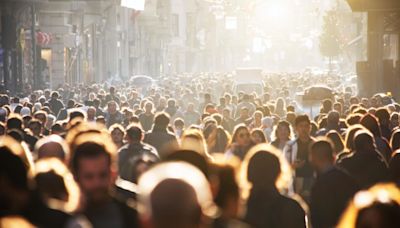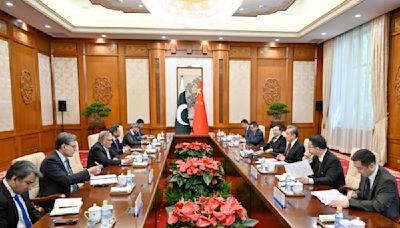Search results
The story of history of the Islamic Republic of Pakistan began on 14 August 1947 when the country came into being in the form of Dominion of Pakistan within the British Commonwealth as the result of Pakistan Movement and the partition of India. While the history of the Pakistani Nation according to the Pakistan government's official chronology ...
- 1843
- 1848
- 1843
- 1848-1849
The history of Pakistan preceding the country's creation in 1947. [1] Although, Pakistan was created in 1947 as a whole new country by the British [2] through partition of India, but the history of the land extends much further back and is intertwined with that of Afghanistan, India, and Iran. Spanning the northwestern expanse of the Indian ...
Jul 30, 2019 · When Did Pakistan Become a Country? Islamabad, the capital of Pakistan. Pakistan is a country found in the Southern part of Asia. The country is formally known as the Islamic Republic of Pakistan. It is one of the most populated countries in the world with a land area of around 881,913 square kilometers supporting approximately 200,813,818 ...
- Sundra Chelsea Atitwa
- Overview
- History of Pakistan
- Background to partition
This section presents the history of Pakistan from the partition of British India (1947) to the present. For a discussion of the earlier history of the region, see India.
This section presents the history of Pakistan from the partition of British India (1947) to the present. For a discussion of the earlier history of the region, see India.
The call for establishing an independent Islamic state on the Indian subcontinent can be traced to a 1930 speech by Sir Muhammad Iqbal, a poet-philosopher and, at the time, president of the All India Muslim League (after Pakistan’s independence, shortened to Muslim League). It was his argument that the four northwestern provinces and regions of British India—i.e., Sind (Sindh), Balochistan, Punjab, and North-West Frontier Province (now Khyber Pakhtunkhwa)—should one day be joined to become a free and independent Muslim state. The limited character of this proposal can be judged from its geographic rather than demographic dimensions. Iqbal’s Pakistan included only those Muslims residing in the Muslim-majority areas in the northwestern quadrant of the subcontinent. It ignored the millions of other Muslims living throughout the subcontinent, and it certainly did not take into account the Muslim majority of Bengal in the east. Moreover, Iqbal’s vision did not reflect the interests of others outside the Muslim League seeking liberation from colonial rule, and it did not conform to ideas reflected in Islamic expressions that spoke of a single Muslim community (ummah) or people (qawm), explaining in no small way why many other Muslim leaders—e.g., Abul Kalam Azad, Abdul Ghaffar Khan, and, later, Khizar Hayat Khan Tiwana—were less than enthused with his proposal.
Also missing at the time was a name to describe such a South Asian country where Muslims would be masters of their own destiny. That task fell to Choudhary Rahmat Ali, a young Muslim student studying at Cambridge in England, who best captured the poet-politician’s yearnings in the single word Pakistan. In a 1933 pamphlet, Now or Never, Rahmat Ali and three Cambridge colleagues coined the name as an acronym for Punjab, Afghania (North-West Frontier Province), Kashmir, and Indus-Sind, combined with the -stan suffix from Baluchistan (Balochistan). It was later pointed out that, when translated from Urdu, Pakistan could also mean “Land of the Pure.”
People also ask
When did Pakistan become a country?
What is the history of Pakistan before 1947?
What is the history of the Islamic Republic of Pakistan?
When did India gain independence from Pakistan?
The British East India Co. subdued the reigning Mughal dynasty in 1757. During the period of British colonial rule, what is now (Muslim) Pakistan was part of (Hindu) India. The new state of Pakistan came into existence in 1947 by act of the British Parliament. The Kashmir region remained a disputed territory between Pakistan and India, with ...
Pakistan - Partition, Independence, 1947: Like India, Pakistan achieved independence from British rule as a dominion within the Commonwealth on August 14-15, 1947, the former day celebrated annually as the country’s Independence Day. However, the leaders of the Muslim League rejected Lord Mountbatten, the last British viceroy of India, to be Pakistan’s first governor-general, or head of ...
Pakistan is the world's fifth most populous country. [443] Between 1951 and 2017, Pakistan's population expanded over sixfold, going from 33.7 million to 207.7 million. The country has a relatively high, although declining, growth rate supported by high birth rates and low death rates.





